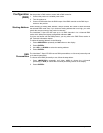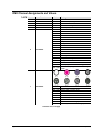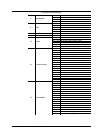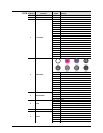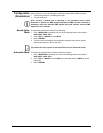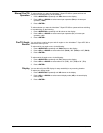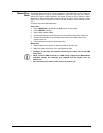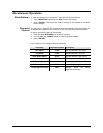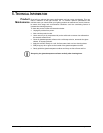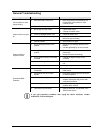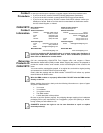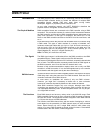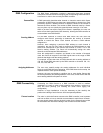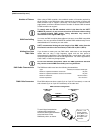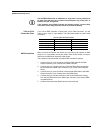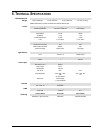
Page 22 of 26 Intimidator™ Spot LED 350 User Manual (Rev. 02)
DMX Primer
Introduction
The DMX protocol (USITT DMX512-A) is a networking protocol that enables a
universal DMX controller device to control the features of multiple DMX
compatible fixtures, whether PAR cans, wash lights, moving heads,
followspots, foggers, or proprietary fixture controllers, etc.
As any other networking protocol, the USITT DMX512-A describes the
physical medium, the signals, and the functions they control.
The Physical Medium
DMX compatible fixtures are connected to the DMX controller using a DMX
connection. This connection consists of a series of wired connections between
the DMX controller and the various DMX compatible fixtures, also known as a
daisy chain connection. In this type of connection, the DATA OUT of one
fixture or the DMX controller connects to the DATA IN of the next fixture, and
so on.
Each DMX fixture links to the previous and next DMX fixture or controller using
a DMX cable. This type of cable consists of a section of shielded, two-
conductor twisted pair cable with one 3-pin or 5-pin XLR male connector on
one end, and a 3-pin or 5-pin XLR female connector on the other end. The
XLR connectors pin-out is as follows: pin 1 is the Common (shield), pin 2 is
Signal Negative (S-), and pin 3 is Signal Positive (S+).
Note: For DMX, pins 4 and 5 are not used.
The Signals
The DMX signal stream is unidirectional from the DMX controller to the DMX
compatible fixtures. These signals conform to the EIA-485 standard.
The stream of DMX signals consists of 512 individual, sequential channels that
form a frame. The DMX controller constantly sends frames of DMX signals to
the DMX connection, even if not all of the 512 channels are in use.
Because of this constant transmission method, there can be only one DMX
controller in a DMX connection. If not, the DMX signals sent by one controller
would interfere with the signals sent by the other controller(s).
DMX Universes
A DMX universe is the set of DMX compatible fixtures connected to the same
DMX daisy chain using the same set of 512 DMX channels. Each set of 512
channels is referred to as a DMX Universe.
In most cases, an installation will consist of only one DMX universe.
However, you might find it necessary to define two or more universes
because of constrains imposed by distance or the number of features.
Most DMX controllers support only one universe, although some DMX
controllers may support two or more universes. Each universe will have its
own separated DMX daisy chain. A DMX compatible fixture can only be part
of a single DMX universe.
The Functions
Each DMX channel can have any unitary value in the 000~255 range. Each
DMX compatible fixture uses as many consecutive DMX channels as features
the user can control. The sequential numbers assigned to each DMX channel
(1~512) are also known as DMX addresses.
The function each DMX channel has, and the results of assigning a value to
each depend on the personality (or DMX channel layout) of each controlled
fixture. Some fixtures only use a single DMX channel, while others may
require 15 or more DMX channels to control all their functions. Personalities
are discussed in the next section, DMX Configuration.



